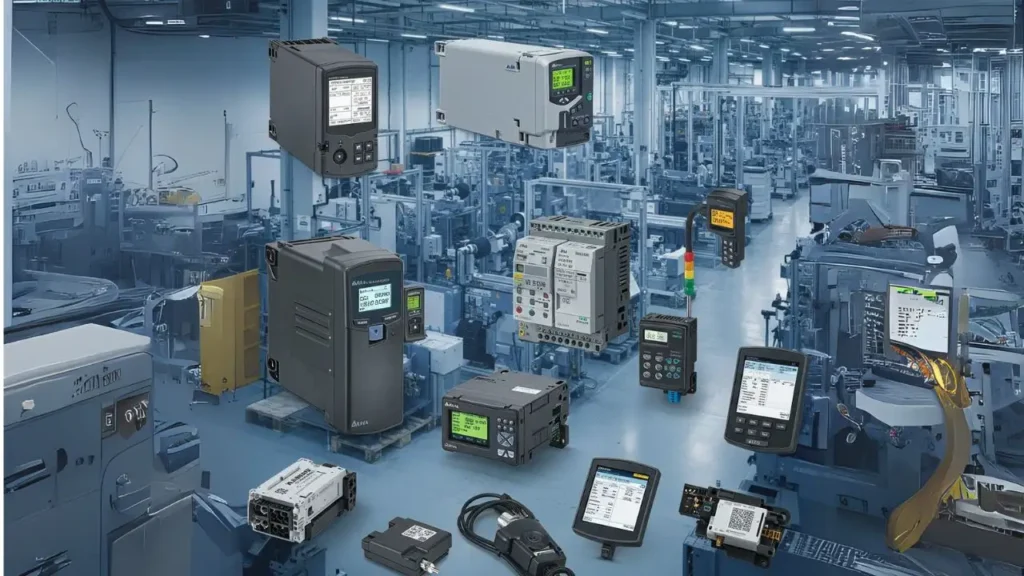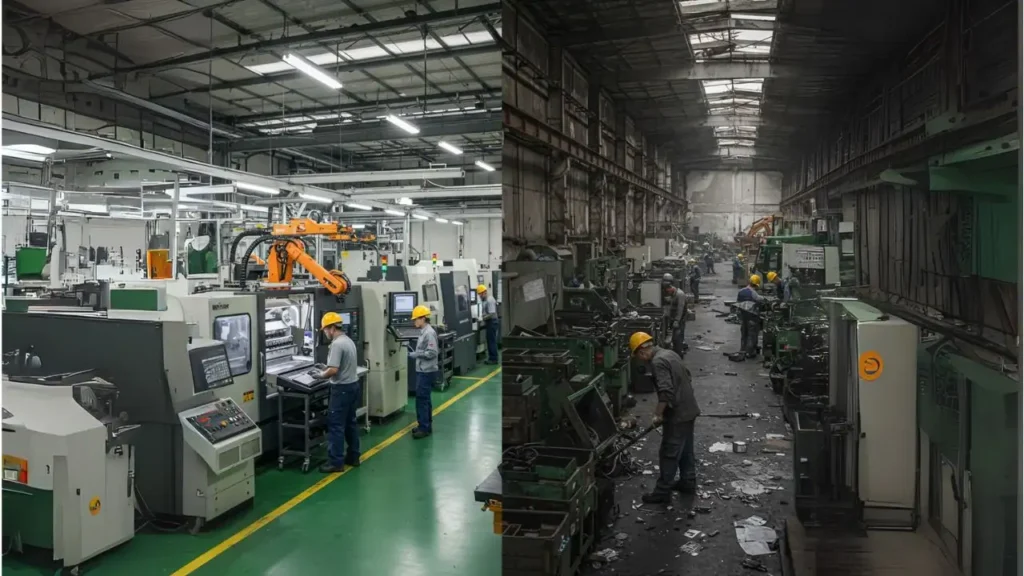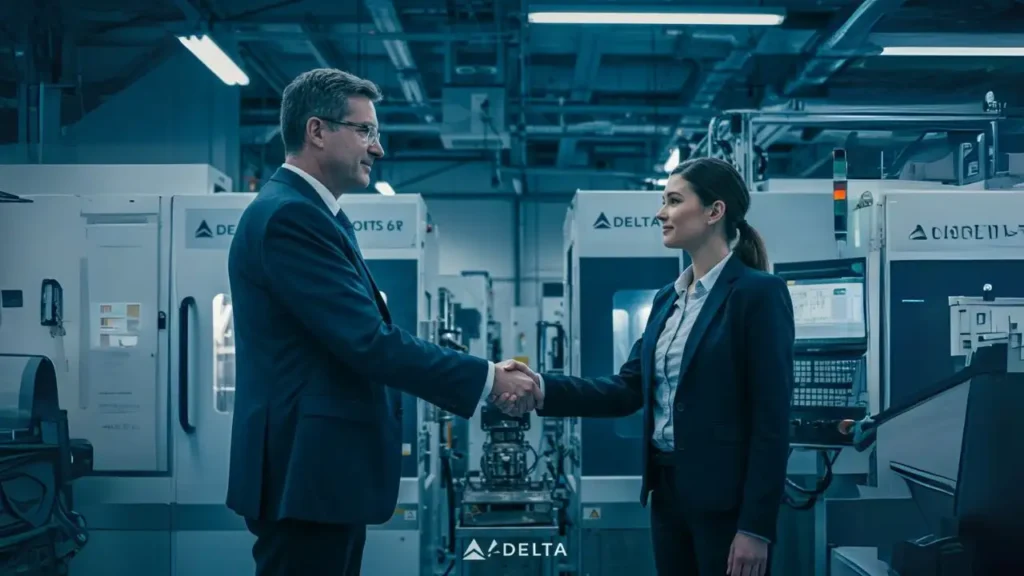How to Choose the Right Delta Dealer in Bangalore
The Problem: Finding Reliable Delta Partners Isn’t Easy

Last month, I got a desperate call from replica watches UK a production manager at a pharmaceutical company in Electronic City. Their manufacturing line had come to a standstill because of an issue with their Delta VFD. The dealer who had supplied the equipment was unreachable, and they were losing lakhs per hour of downtime.
This scenario is far too common in Bangalore’s industrial sectors. With the city’s notorious traffic and countless suppliers claiming to be “authorized” Delta dealers, finding a reliable best replica watches partner for your automation needs can feel like best replica watches uk searching for a needle in a haystack.
After helping dozens of manufacturing units select the right Delta partners over my 11 years in this industry, I’ve learned the hard way what separates excellent dealers from the ones that disappear when problems arise. This guide shares those insights so you won’t make the same mistakes I’ve seen companies make repeatedly.
Understanding Delta Electronics’ Presence in Bangalore
TAG Heuer replica Before we dive into dealer selection, let’s understand what’s happening with Delta in Bangalore. In September 2024, Delta Electronics shifted its India headquarters from Gurgaon to Bangalore to be closer to its manufacturing facilities in Tamil Nadu. This strategic move cheap replica rolex watches has significantly improved product availability and technical support in South India.
I visited their new facility off Hosur Road last month (got lost twice thanks to my outdated Google Maps!), and I was genuinely impressed by their expanded demo center. The facility allows you to test compatibility between different product lines before purchasing—something that wasn’t possible earlier without extensive lab setups.
“Bangalore’s emergence as our India headquarters reflects the city’s importance as a technology hub and its proximity to our manufacturing operations. We’re committed to strengthening our dealer network here to better serve South Indian industries.”
Delta’s Core Products You’ll Need in Bangalore

From my experience with Bangalore’s manufacturing sector, these are the Delta products most commonly needed (and the ones you’ll want your dealer to have expertise in):
- Variable Frequency Drives (VFDs): Particularly the CP2000 and MS300 series. Last year, I helped a textile unit in Peenya Industrial replica watches Area reduce their energy consumption by 32% by replacing their old drives with Delta’s CP2000 series. The ROI was just 7 months—far better than the 18 months they expected.
- Programmable Logic Controllers (PLCs): The DVP series (ES2, SS2, SV) remains the backbone for many small to medium operations in Bangalore. For larger operations, the AH500 series offers better scalability. I’ve seen both perform flawlessly in the city’s unstable power conditions, which says a lot.
- Human-Machine Interface (HMI): The DOP series, especially the B series with its 65K color display, has become the standard in many Bangalore factories. They hold up surprisingly well even in dusty environments like those in the Jigani industrial area.
- Servo Systems: The ASDA-B3 series has gained popularity for its precision in Bangalore’s electronics manufacturing sector. One client in the Electronics City Phase 1 switched from a competitor to Delta servos and improved their rejection rate by almost 40%.
Why Choosing the Right Dealer Dealer: A Real-World Example

Three years ago, I consulted for two neighboring factories in Bommasandra. Both purchased identical Delta PLC systems for similar applications, but from different dealers. The price difference was about 4%—Factory A chose the cheaper option.
Six months later, Factory A had spent nearly five times that “savings” on troubleshooting, system downtime, and eventually replacing components that turned out to be grey market imports with no valid warranty. Factory B, meanwhile, had smooth operations and received three free programming support visits included in their slightly higher initial purchase.
This stark difference comes down to dealer selection. Let me share what I’ve learned about choosing the right one for your needs.
Common Mistakes When Choosing Delta Dealers

Over the years, I’ve witnessed companies repeatedly make these avoidable mistakes when selecting automation partners:
1. Choosing Based Solely on Price
The difference between the highest and lowest quote for Delta products should typically be less than 5%. When you see bigger differences, investigate what’s being excluded. One electronics manufacturer in Whitefield went with the cheapest quote, only to discover later that commissioning support was “additional” and cost more than the initial savings.
2. Not Checking Real Technical Capabilities
Many dealers claim expertise in all Delta products, but few actually have it. I always ask for specific examples of applications similar to mine. Last year, a food processing client insisted on using a dealer who claimed “extensive PLC programming experience.” When their production line was ready for commissioning, we discovered the dealer had outsourced programming to a freelancer who was unavailable for troubleshooting.
3. Ignoring Local Support Infrastructure
I’ve seen companies choose dealers based on good experiences in other cities, only to discover that their Bangalore operations were understaffed or newly established. Always visit the local office and meet the team who will actually support you—not just the sales representatives.
4. Failing to Check References
This sounds obvious, but it’s frequently overlooked. Ask for references from customers who have been with the dealer for at least two years—the honeymoon period often masks service issues that emerge later. One manufacturing client didn’t do this and discovered their dealer had a reputation for disappearing after the warranty period.
My Selection Process: A Practical Approach

After years of helping companies select Delta dealers in Bangalore, here’s the process I recommend:
- Create a shortlist of 3-4 authorized dealers based on their proximity to your location and industry experience.
- Visit their facilities unannounced if possible. This gives you a realistic picture of their operations, inventory levels, and technical capabilities.
- Ask for similar project references and actually call those customers. Ask specific questions about support response times and how problems were handled.
- Request a technical meeting, not just with sales staff but with the engineers who would support your project. Present your requirements and evaluate their understanding and suggestions.
- Discuss after-sales support in detail, including response times, escalation procedures, and what’s included vs. what costs extra.
“The cheapest Delta dealer rarely ends up being the most economical choice in the long run. The true cost includes downtime, troubleshooting, and the opportunity cost of delayed projects.”
Final Thoughts: Building a Partnership, Not Just Purchasing Products

After helping dozens of companies select automation partners in Bangalore, I’ve realized that the best dealer relationships aren’t transactional—they’re genuine partnerships that evolve over time. Your Delta dealer should become an extension of your engineering team, providing not just products but strategic guidance on automation roadmaps.
The industrial landscape in Bangalore is evolving rapidly, with Delta’s expanded presence accelerating innovation in automation solutions. The right dealer will help you navigate these changes and leverage new technologies to maintain competitive advantage.
Remember, you’re not just buying PLCs, VFDs, or HMIs—you’re investing in your facility’s operational reliability and future growth capacity. Choose accordingly.



Leave a Reply